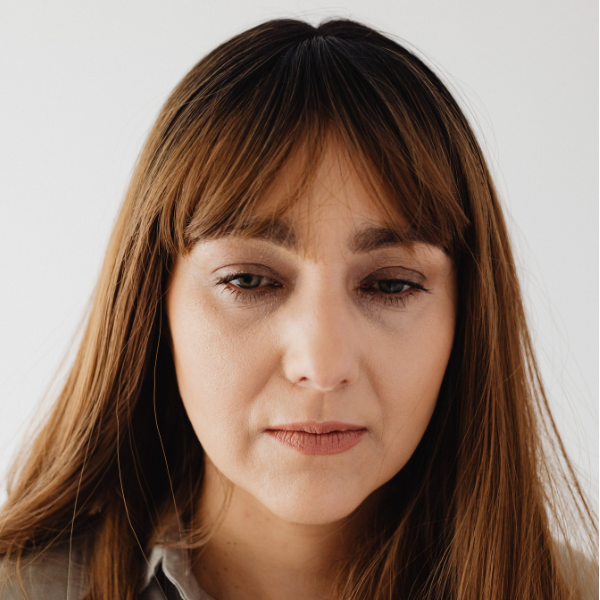Bringing a new life into the world is a joyous occasion, but for some women, the postpartum period can be accompanied by a complex and often misunderstood condition called postpartum depression (PPD). This form of depression can affect women after childbirth, leading to emotional, physical, and psychological challenges.
Recognizing the signs of postpartum depression is necessary to ensure early intervention and support. This comprehensive guide will delve into the signs and symptoms of postpartum depression, explore the underlying causes, and provide guidance on seeking appropriate help and support.
Understanding postpartum depression
Postpartum depression affects women after giving birth, causing persistent sadness, hopelessness, and worthlessness. New mothers must distinguish postpartum depression from the “baby blues” and actual postpartum depression.

Worldwide, postpartum depression is a prevalent issue affecting approximately 1 in 7 women. It also affects 1 in 10 men, and these statistics vary across countries and cultures, highlighting the need for increased awareness and support.
The impact of postpartum depression
Postpartum depression affects the mother and significantly impacts the mother-infant relationship and early childhood development. Women with postpartum depression may experience difficulties bonding with their babies, leading to potential long-term effects on the child’s emotional and cognitive development.
The emotional and physical strain of postpartum depression can disrupt family dynamics and affect the well-being of the entire household.
Recognizing the signs and symptoms
Emotional signs
One of the primary indicators of postpartum depression is intense and persistent feelings of sadness, emptiness, or hopelessness. Women may cry excessively, feel irritable without an apparent cause, and experience overwhelming guilt, inadequacy, or worthlessness.
Physical signs
Postpartum depression can manifest in physical symptoms, including changes in appetite and sleep patterns. Women may experience a loss of appetite or, conversely, an increased desire for comfort foods.
Sleep disturbances, such as insomnia or excessive sleep, are common indicators of postpartum depression. Fatigue, low energy levels, and a lack of motivation are additional physical signs to watch for.

Cognitive signs
Cognitive symptoms of postpartum depression may involve difficulties with concentration, decision-making, and memory. Women may struggle to focus on daily tasks, find it challenging to make even simple decisions, and experience memory lapses.
In some cases, intrusive or negative thoughts about self-harm or the baby’s well-being may arise.
Behavioral signs
Women with postpartum depression may exhibit changes in behavior, such as withdrawing from family and friends, isolating themselves socially, and losing interest in activities they once enjoyed. Excessive worry or anxiety about the baby’s health and well-being may also be present.
Risk factors and causes
Hormonal and biological factors
Hormonal fluctuations during pregnancy and the postpartum period play a significant role in postpartum depression. After childbirth, there is a rapid decline in hormone levels, including estrogen and progesterone, which can contribute to mood disturbances.
Neurotransmitter imbalances like serotonin and dopamine are associated with mood disorders like depression.

Personal and psychosocial factors
Certain personal and psychosocial factors increase the risk of postpartum depression. Women with a personal or family history of mental health conditions, such as depression or anxiety, are more susceptible.
Lack of social support, strained relationships, high-stress levels, financial difficulties, and traumatic childbirth experiences can also contribute to developing postpartum depression.
Cultural and societal influences
Cultural expectations, societal pressure, and motherhood stigma can impact a woman’s mental health postpartum. Societal norms that place unrealistic expectations on new mothers to balance multiple roles and responsibilities without adequate support can contribute to feelings of overwhelm and isolated.
Moreover, disparities in access to healthcare and support services can further exacerbate the challenges faced by women with postpartum depression.
Seeking help and support
Self-care strategies
Self-care is vital for women with postpartum depression. Prioritizing rest, proper nutrition, and exercise can significantly impact mental well-being. Engaging in stress-reducing activities, such as meditation, deep breathing exercises, or pursuing hobbies, can also provide relief.
Building a support network
Women experiencing postpartum depression must seek support. Family, friends, and support groups can provide emotional validation, practical assistance, and a listening ear. Mental health professionals, including therapists or counselors, can offer guidance and evidence-based interventions.

Medical interventions
Treatment options for postpartum depression range from therapy to medication, depending on the severity and individual needs.
Cognitive-behavioral therapy (CBT) and interpersonal therapy (IPT) have effectively treated postpartum depression. In some cases, antidepressant medication may be prescribed. It’s best to involve healthcare providers, openly discuss concerns, and explore the best treatment plan for each individual.
Partner and family support
The involvement of partners and family members is important in supporting a woman with postpartum depression. Encouraging open communication, understanding the challenges faced, and actively participating in caregiving and household responsibilities can alleviate the burden on the affected mother.
Takeaway
Postpartum depression can impact the lives of women and their families. Women can navigate the challenges of postpartum depression by recognizing the signs and seeking help from loved ones.
Remember, seeking help is not a sign of weakness but a courageous step towards ensuring the mother’s and her child’s well-being.
Let us unite to spread awareness, reduce stigma, and support those affected by postpartum depression!


